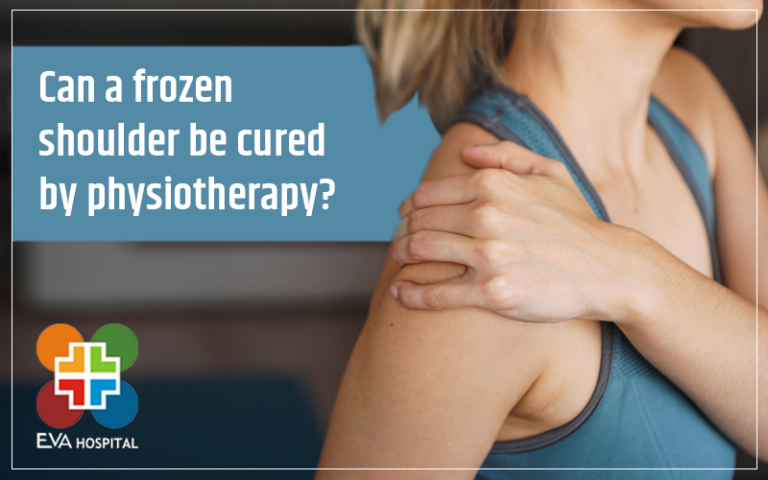
Can a Frozen Shoulder be Cured by Physiotherapy?
In work conditions that involve having to keep your shoulder stiff for a longer period, one is at a greater risk of developing a health condition commonly known as frozen shoulder. This is why this condition is quite common among people who work for a long time over computers.
Also referred to as adhesive capsulitis, frozen shoulder is a state in which the shoulder becomes stiff, and shoulder joint aches, all of this leading to restricted motion in the shoulder and adjoining areas.
This health condition is common among people aged between 40-60 years and manifests the severity in three stages—freezing (painful), frozen (adhesive), and thawing.
In most cases, frozen shoulder is treated with a combination of medication, physiotherapy, and, in extreme cases, surgery. That brings us to the question, can frozen shoulders be cured only by way of physiotherapy without any medication? We try to find answers to that question.
Can a frozen shoulder be treated entirely through physiotherapy?
Once you get yourself examined by an expert, they prescribe a treatment for a frozen shoulder focused on relieving pain and restoring the shoulder’s normal range of motion. In achieving these twin targets, physiotherapy is known to be quite effective. Orthopedic experts are of the view that physiotherapy is extremely beneficial in speeding up the recovery process irrespective of the severity of the situation.
Through the course of the treatment, you will be helped to perform exercises concentrating first on stretching the joint capsule, and later, on strengthening. Your physiotherapist aims at bringing back the range of motion through various exercises, targeted at relaxing the shoulder muscles and joints. Physiotherapy operates over a long period of time and it can deliver relief in due course. In fact, in 90% of the cases, physiotherapy is found to be highly effective in getting back a full range of motion.
However, experts are united in their opinion that physiotherapy can only be recommended as an associated treatment option and not a standalone treatment. Typically, doctors recommend nonsteroidal anti-inflammatory drugs and glucocorticoids given orally or as intra-articular injections, along with physiotherapy. A combination of these two has been known to be more effective in achieving the best results.
Frozen shoulder: Stages and timeline
Freezing: 2-9 months
Frozen: 4-12 months
Thawing: 5-26 months
Exercises for frozen shoulder
- Pendulum stretch
- Towel stretch
- Armpit stretch
- Finger walk
- Cross-body reach
- Outward rotation
- Inward rotation







